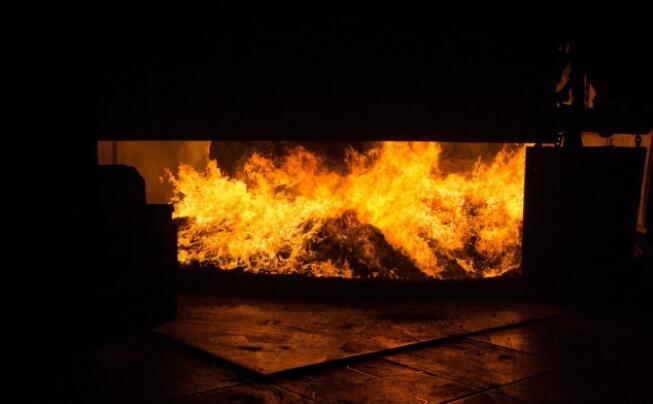第十八课 活生生的火炉
We must be plain with our reader. It will not do to mince matters where questions of science are concerned. Dainty people will, no doubt, object to the proposition we are about to advance. Nevertheless we persist, and proceed to lay down the following assertion: We are all living stoves—walking fire-places—furnaces in the flesh.
我们必须要用简明的言语向读者阐明。事关科学的问题不可杂糅事实。毫无疑问的是,人们的挑剔要服从于我们想要进步的主张。然而,我们还是会坚持并继续铺下以下的声明:我们所有人都是一个活生生的火炉子——会走路的火炉子——人肉炉子。
Now we do not intend to say that any one can light a cigar, or boil an egg, or even ignite a lucifer-match at these human hearths. Still, we repeat, these bodies of ours are stoves—fire-places—furnaces, if these terms can be applied to any apparatus for the express production of heat. And is not heat produced in the human body by the union of oxygen with carbon, just the same as by the burning of wood in an open fire-place? and does not this union take place in the capillaries of the blood-vessels?
我们也没打算说人的身体能点燃雪茄,或者煮熟鸡蛋,甚至点燃火柴。我们还是要重复的是,如果这些术语因为表达产生热而能应用于任何装置的话,那么我们的身体是火炉。这种热量不是由于碳氧结合产生于体内,只是和在开阔地上烧木头一个原理吗?这以结合过程发生在血管的毛细管内吗?

But granting that our bodies are veritable stoves, the reader will desire to know where we procure our fuel. Fortunately, our coal and fire-wood are stored up in a very interesting form. They are laid before us in the shape of bread and butter, puddings and pies; rashers of bacon for the labourer, and haunches of venison or turtle-soup for the epicure. Instead of being brought up in scuttles, they are presented in tureens, dishes, or tumblers, or all of them, in pleasant succession.
但是读者们就算同意我们的身体是真正的火炉这一说法,他们也会想知道我们在何处产生燃料。幸运的是,我么的“煤”和“木柴“都以一种很有趣的形式储存着。他们的形状像面包和黄油,布丁和馅饼一样摆在我们面前;像是劳工们吃的培根薄片,也像美食家们品尝的鹿腰和乌龟汤。他们没有放在煤桶内,而是有序地摆放在盖碗,碟子,水杯,或者所有这些器皿中。
In fact, whenever you send a person an invitation to dinner, you virtually request the honour of his company to take fuel; and when you see him enthusiastically employed on your dainties, you know that he is literally "shovelling" fuel into his corporeal stove. The ultimate form in which this fuel is burned in the capillaries is that of carbon, with a little hydrogen and sulphur; but we swallow it in the shape of fat, starch, sugar, alcohol, and other less inflam-matory compounds. By far the most heating of these substances is fat. Ten pounds of this material, imported into your stove, will do as much work—that is, will produce as much warmth—as twenty-five pounds of starch, twenty-five of sugar, or even twenty-six of spirits.
实际上,你邀请别人共进晚餐时,你其实是在要求尊重其同伴摄入燃料;当对方兴高采烈地答应你的请求,你知道他是在答应将燃料“投入“到体内。这些燃料在毛细血管中燃烧过后的最终形式是碳,伴着一点点氢和硫;但是我们咽下去时它的形状就会是脂肪,淀粉,糖,酒精和其它少量炎症性混合物。到这一步,脂肪是热量最大的物质。体内摄入十磅脂肪,做的功就相当于——即产生的热量——二十五磅淀粉,糖,甚至是二十六磅的烈酒所产生的热量。
And a pleasant thing it is to observe how sagaciously the instinct of man has fastened upon the articles which will best supply him with the species of fuel he requires. The Esquimau is extremely partial to oily fare. He does not know why. He never heard of the doctrine of animal heat, but he feels intuitively that bear's grease and blubber are the things for him. Condemn him to live on potatoes or Indian corn, and the poor fellow would resent the cruelty as much as an alderman of the old school if sentenced to subsist on water-gruel alone.
观察人的本能是件让人愉悦的事,人们能认定某个物品就是最能满足自己所需的燃料。爱斯基摩人特别钟爱油腻的食物。他们自己也不知道这是为什么。他们从未听说过动物热量这回事,但是他们本能地知道熊脂和鲸脂就是自己所需。要是指责他们靠土豆或是印度玉米生活,这些可怜的家伙会对这种残忍行为表示愤恨,这种愤恨程度不亚于让一个市政议员靠喝米汤度日的愤怒。
And the savage would be perfectly right. Exposed as he is to the fierce cold of a northern sky, every object around him plundering him of his caloric incessantly, what he needs is plenty of oily food, because from that he can produce the greatest quantity of heat. On the other hand, the native of the tropics, equally ignorant of animal chemistry, eschews the fiery diet, which his climate renders inappropriate, and keeps himself cool on rice, or dates, or watery fruits.
爱斯基摩人是对的。他们生活在地球北部,那里天气极寒,他们身边的一切东西都在不断地吸取他们身上的热量,他们需要的就是油腻食物,因为他们能从这些食物当中得到大量的热量。另一方面,热带地区的居民也同样不会在意这种动物热量之说,他们会避开高热量的饮食,这和当地的气候不相协调。他们会把米饭,大枣或富含水分的水果进行冷却。














